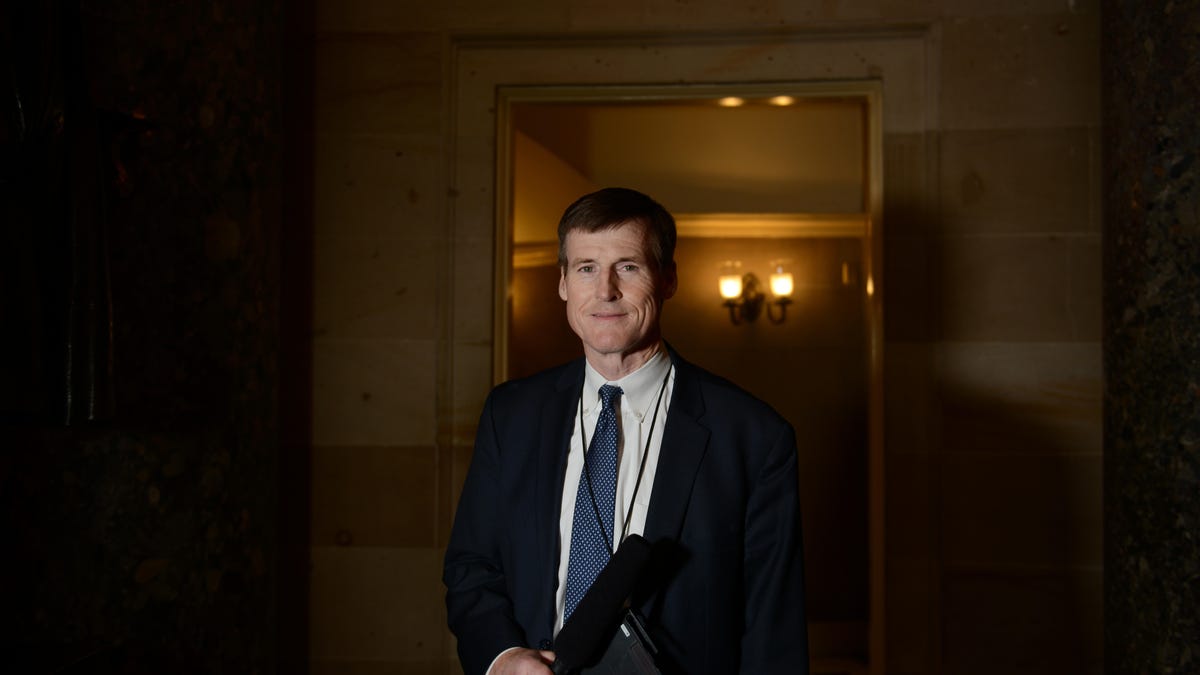Radio reporter who lost his voice finds a way to talk again
Jamie Dupree's archived audio, pulled from years of his material, is letting him tell radio stories once more.

Radio journalist Jamie Dupree suddenly couldn't talk anymore after a rare condition caused him to lose control of his tongue.
If you're a radio reporter, not having a voice can be quite a challenge.
It's a struggle Jamie Dupree, who started his radio career in 1983, has dealt with for two years, he wrote.
Dupree was diagnosed with tongue protrusion dystonia, which means his tongue comes out of his mouth when he talks, making speech difficult.
"What's it like?" Dupree wrote in a piece for The Atlanta Journal-Constitution. "Just imagine going through the rest of your day without being able to say much more than 'yes' or 'no.'"
Late last year, his situation caught the attention of Rep. Ileana Ros-Lehtinen, a Republican from Florida who spoke on the floor of the House about his struggle and the lack of solutions. That ultimately garnered the attention Dupree needed to find an answer to his problem.
Publications like Politico and The Washington Post reported on his efforts to keep his radio job, and Dupree was flooded with email and social media messages offering ideas on what could be wrong and where to seek treatment.
Dupree's co-workers at Cox Media Group sought a high-tech solution to get him back on the air. They came across a Scottish company called CereProc, which went through years of Dupree's archived audio to "build a voice --which, when paired with a text-to-speech application -- would sound like me, and hopefully get me back on the radio," Dupree wrote.
When Dupree types words, the text-to-speech program creates those sounds with a computer-generated synthesis of his voice. The prosthetic voice will be known as Jamie Dupree 2.0.
"The big news today is that it looks like that is going to work, and allow me to 'talk' on the radio again," Dupree wrote.
Beginning next week, Dupree will be back on the air in Cox Media Group's hourly newscasts to report news from Capitol Hill and Washington, DC.
Tech has helped others get their voices back. In April, Ice Bucket Challenge founder Pat Quinn got his voice back with the help of voice AI software. Project Revoice took samples of Quinn's speeches and YouTube videos promoting the Ice Bucket Challenge and built a digital recreation of his voice. Using the tech and existing assistive eye-reader technology, he can now create text-to-speech in his own voice by looking at parts of a screen.
Follow the Money: This is how digital cash is changing the way we save, shop and work.
CNET Magazine: Check out a sample of the stories in CNET's newsstand edition.

